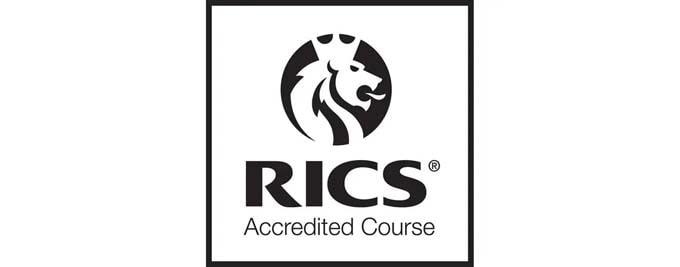Networking in perfection
The biggest stressor when approaching strangers is the fear of rejection. The thought "What do others think?" is so ingrained in many people that they don't dare to approach others. But without this step, networking is not possible.

Who hasn't experienced this? You're at an event, whether for business or pleasure, and you only talk to people you already know. Yet events like these are wonderful opportunities to get to know other, new people. But all too often people are too shy. You don't want to come across as pushy. After all, it could lead to an awkward silence or the person you are talking to could be unpleasant in some way. For many people, it is therefore easier and more relaxed to only talk to people they already know. At least then you know where you stand. But if you don't talk to strangers at events, you run the risk of living below your means. Be it missed interesting topics and opinions, or perhaps even jobs and friends.
The fear of rejection
Admittedly, hardly anyone admits this to the outside world, because what would your friends or colleagues think if you said: "I don't want to go to the event. I don't know anyone there. And I don't want to talk to anyone. I'm just worried that I'll be a nuisance if I sit or stand next to strangers." Arguments, or rather excuses, such as "I can't go to the event, unfortunately I don't have time" are more socially acceptable.
From a purely objective point of view, you could say: "Just go there. If you approach a few people, you're bound to have a few conversations. And if someone actually rejects you, then just go to other people at the event." That's the logic. And since that sounds so plausible, most people who would like to network but don't know how to do so stress themselves out.
Suddenly, agonizing thoughts shoot through your head, which are often very (self-)destructive: "Why am I too stupid to just say to someone 'Hello, what brings you here to the event?" or 'Hello, I'm Max Mustermann. You and I don't know each other yet. How did you find out about this event?"
False expectations are deceptive
If you expect or demand of yourself that you have to meet interesting people, you are bound to fail. Because then you think and judge far too much: "What does he look like? I'm not going to see him!", "They drink beer that early? They can't be sensible people!" or "Oh, he's standing there on his own, so he can't be important!". These judgments are fatal - and nip any idea of networking in the bud.
Networking is not primarily about "only" approaching certain people, but generally people you don't know yet - without prejudice. After all, you're not supposed to spend the whole evening (or the rest of your life) with the person you've just spoken to, but you should definitely change conversation partners. And yes, sometimes there's just no spark - but other times it's instant. But that's normal. However, if you are frantically looking for clients or a new partner by networking and talking to people, you are putting yourself under far too much pressure. I'm sure you've also experienced this: people who want to sell you something right away at an event appear very desperate to others - and therefore unattractive.
How to start a conversation ...
A fairly relaxed option is to take a quick look around the event room and then introduce yourself at a bar table where there is still some space, for example, with the words "Hello, I'm Max Mustermann. May I join you?". The other people at the table are usually in the middle of a conversation but are happy to let you into their circle. It's not about entertaining the whole table straight away, but about listening first. What is the conversation about? Can you contribute something?
Ideally, you should not attract attention by giving a long monologue or even a lecture. However, this can quickly happen if you expect to inspire those present ("What could the others think if they don't realize what a brilliant person has just joined them?"). It is better to ask a good question about the topic that has just been discussed in order to show interest and ideally expand your own knowledge spectrum.
This is exactly what is crucial: asking questions to understand other people even better. Don't hold unsolicited monologues. Sympathy develops quickly when you realize that another person is genuinely interested in your own experiences and opinions.
If you can't do anything with the topic at the table at the moment, it's better not to ask or say anything about it yourself, but perhaps contribute a few minutes later when the topic is more suitable or interesting for you. Or, when something is finished, introduce another topic, for example "And what did you particularly like about the presentation by the guest speaker on stage that we heard earlier in the room?"
And when is the deal coming?
"So, what do you do?" is a very common question on first contact. However, it is important to maintain a balance between intrusiveness and indifference. If one person is too much in sales mode while the other is not in buying mode at all, it can quickly become awkward.
Changing to a more in-depth business topic afterwards has proven to be a good idea. For example, you could add the person via LinkedIn and call them a few days after making contact: "Nice that we recently spoke at the event in Berlin. I've now seen that you do A and B. I thought I'd pick up the phone for a moment because I have a valuable addition. Can we talk briefly about this?"
Networking in perfection
If you want to network properly, you don't just talk to strangers in order to sell them something, but to help them unconditionally - without any ulterior motives. In short: you support the person by giving them contacts, tips or recommendations if you have the impression that these suggestions would be of benefit to them. This strengthens your own reputation in the medium term, even if not every person you have helped will - and can - return the favor directly. The bottom line, however, is that this will make you an even more attractive person to talk to and contact, because word will increasingly get around that you are a person who sees solutions and ways forward, has many contacts and supports others without prejudice and without expecting anything in return.
Author:
Oliver Schumacher, sales trainer since 2009, networking professional and personal brand, sets new trends in the areas of knowledge transfer, learning culture and personal positioning in a likeable, well-founded manner. Under the motto "Be real", he shows how anyone can become No. 1 - whether self-employed, manager or employee. For him, the main drivers of growth are curiosity and courage, discipline and (self-)confidence.


















